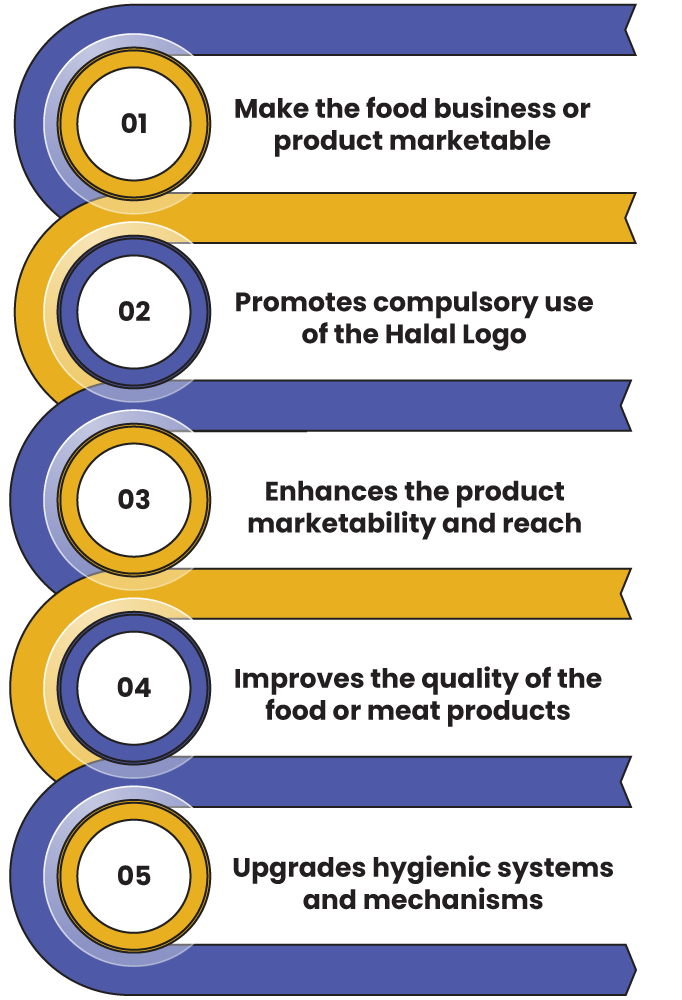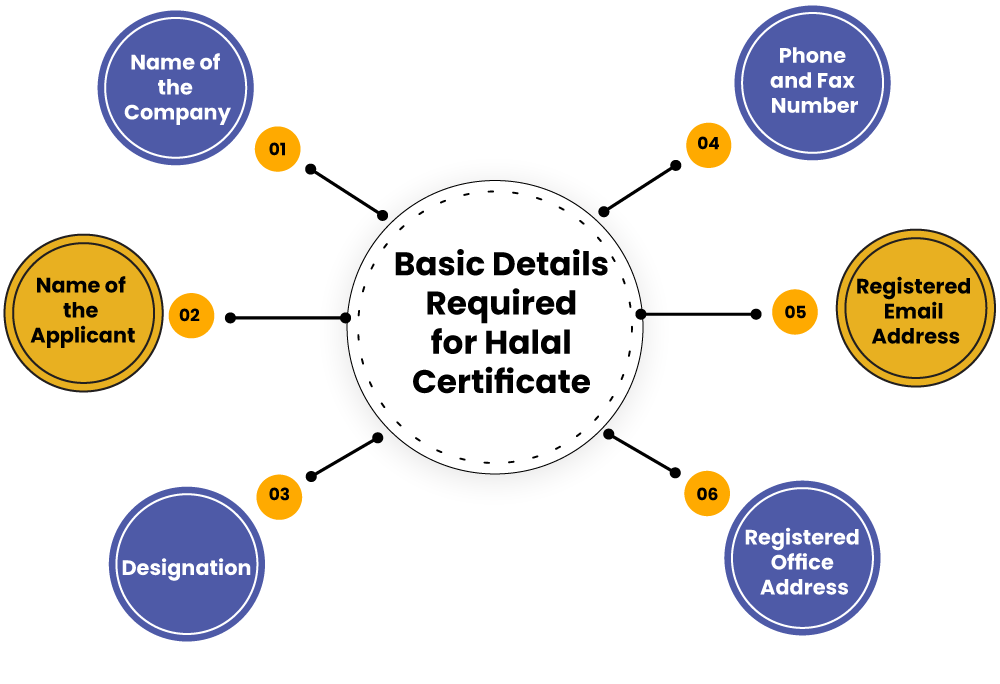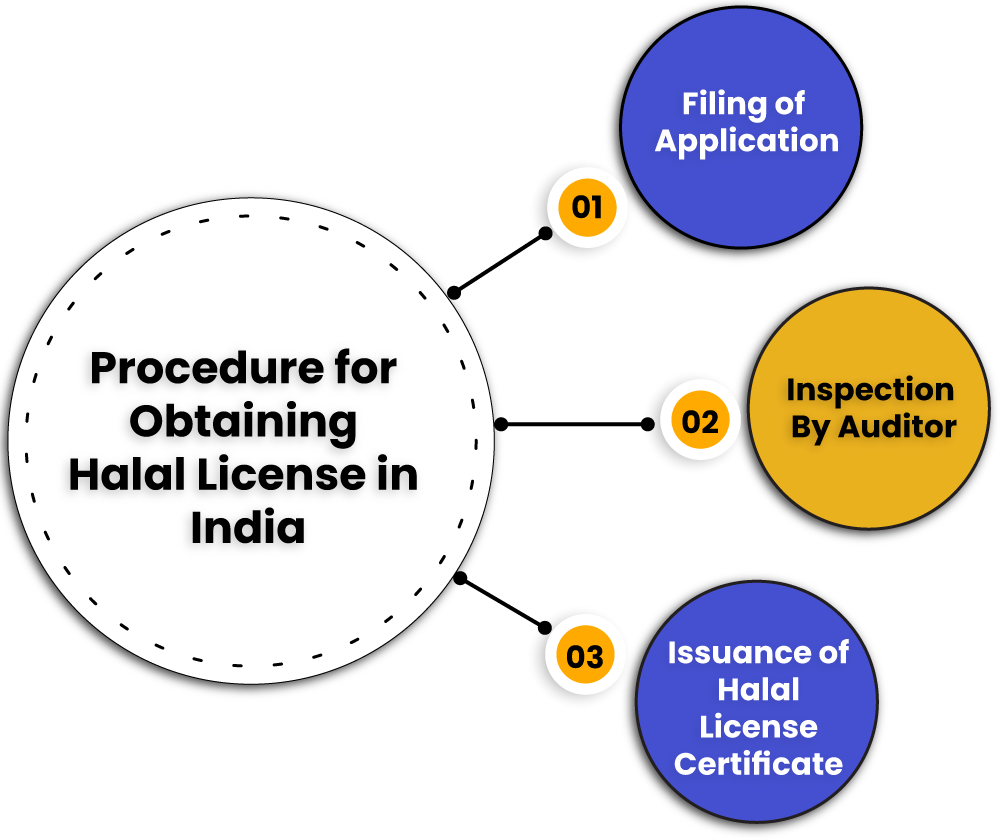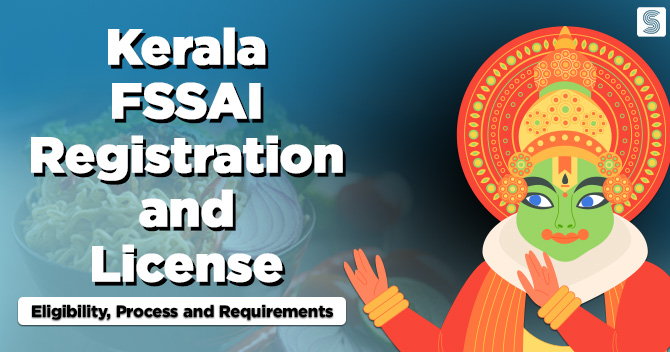Halal License Certificate: How to obtain it for Meat Shops in India?

Shivani Jain | Updated: Nov 23, 2020 | Category: FSSAI
Halal License Certificate is a record that makes sure that all the food items and administrations concentrating on the Muslim population meet the fundamentals of Islamic law and subsequently are reasonable for utilization in both Western Nations and Muslim-central part Nations where there is a huge bunch of population who practice Islam. Further, such countries are France, the United Kingdom, Germany, Spain, etc.
In this blog, we will discuss in detail the concept of Halal License Certificate, together with its types and process for obtaining it in India.
Table of Contents
Concept of Halal License Certificate
The term “Halal” is an Arabic word that means permissible and lawful. In the same manner, the Halal License Certificate is a legal record that ensures both the process and the food product is as per Islamic Law. That means it acts as a confirmation that a particular food product can easily be served in countries.
However, the same is not just limited to religious matters but extends to safety concerns and health benefits as well. Further, a Halal License Certificate primarily concentrates on milk, meat products, packaged food and additives as well.
Benefits of Obtaining Halal License Certificate
The benefits of Halal License Certificate are as follows:

- Make the food business or a food product marketable to over 5billion people across the world;
- Promotes compulsory use of the Halal Logo;
- Enhances the marketability and reach of the product in Muslim countries;
- Improves the quality of the food or meat products;
- Upgrades hygienic systems and mechanisms;
Requirements for Halal Certificate
The key requirements for obtaining Halal Certificate in India are as follows:
- The product must not contain any matter or part of an animal that is strictly prohibited for a Muslim to consume;
- The product must not contain any matter or part of an animal that has not been properly slaughtered as per the regulations of Shariat;
- The product must not contain any substance that is considered as impure as per the regulations of Shariat;
- Any product that has not been properly manufactured, prepared, and processed as per the regulations of Shariat will not be eligible for Halal License Certificate;
Halal License Bodies in India
The different Halal License Bodies prevailing in India are as follows:
- Halal India Pvt Limited.
- Halal Certification Services India Pvt Limited
- Jamiat Ulama-E- Maharashtra (a State unit of JamiatUlama-E-Hind).
- Jamiat Ulama-i-Hind Halal Trust.
Types of Halal Certification in India
Normally, the type of Halal Certification required for a business entity depends upon the nature of the activity. In India, Halal Certification is mostly required by hotels, restaurants, packaging and labelling entities, slaughtering houses, etc.
Further, the main aim behind the issuance of Halal License is to make sure that a particular food outlet or food product is safe for the consumption of the Muslim population.
However, it shall be relevant to state that Halal Certification is not limited to food products only, and it includes raw materials and non-alcoholic products as well.
Further, the term “raw materials and non-alcoholic products” means the products that are required for the manufacture of pharmaceutical, health care products, food processing, cosmetics, traditional herbal products, and personal care products. Also, it shall be relevant to state that daily consumable items and cleaning products are eligible for Halal Certification as well.
Thus, to obtain Halal Certification in India, one can choose from either of the schemes as follows:
- Food, Beverage and Catering Scheme;
- Restaurant Scheme;
- Industrial Scheme;
- Abattoir Scheme;
- Warehouse and Storage Scheme; and
- Product Endorsement Scheme;
Basic Details Required for Halal Certificate
The basic details required for Halal Certificate in India are as follows:

- Name of the Company;
- Name of the Applicant;
- Designation;
- Phone and Fax Number;
- Registered Email Address;
- Registered Office Address;
Also, Read: How to Start a Chocolate Making Business in India: A Complete Guide
Documents Required for Obtaining Halal License in India
The documents required for obtaining Halal License in India are as follows:
- Requisition Certificate on company’s letterhead;
- Details of Company Registration;
- A copy of the Manufacturing License;
- A copy of Import Export Code License (If in case entity deals in the import export business);
- A copy of the Health License or Health certificate acquired from the Local Panchayat Municipality;
- Procedures followed for Pest Control;
- Production Flow Chart;
- A copy of FSSAI License;
- Sample of the product with original packing;
- Plant Diagram;
- Image of company’s logo in JPEG format;
- Image of Packing and Manufacturing units in JPEG format;
- Other Documents, such as follows:
- ISO Certification;
- GMP Certification;
- HACCP Certification;and
- KOSHER Certification;
- Lab Testing Report;
- A copy of the company’s Aadhaar Card;
Procedure for Obtaining Halal License in India
The steps involved in the procedure for obtaining Halal License in India are as follows:

Filing of Application
The first step in the process to obtain Halal License is that the business requires to file an application for certification with the Halal License Certification Bodies.
However, it shall be considerate to note that the business filing the application must have fulfilled, halal system requirements, basic halal requirements, and halal staffing requirements.
Inspection by Auditor
After the proper verification of the information and details furnished, the business premise will be inspected by the Auditors. Further, the term Auditors include one technical auditor and one shariat auditor.
Moreover, the areas to be inspected by auditors for issuing Halal License Certification are as follows:
- Documentation;
- Processing and Handling Process;
- Process of Product Distribution;
- Storage Facilities;
- Display and Product serving Facilities;
- The procedure followed for Food Safety;
- Cleanliness and Sanitary Amenities;
- Overall Aspects of the Premise;
- Apparatus, Tools, Machinery used;
- Packing and Labelling Provisions;
Also, during the process of Audit, the said business entity needs to provide some additional details as follows:
- Criteria for Accepting Raw Materials and Ingredients
- COA (Certificate of Analysis)
- Halal Certificate for individual ingredients
Lastly, after the completion of the process of verification, the auditor, together with the owner of the business need to sign the Audit Report.
Issuance of Halal License Certificate
Once the process of Halal Audit is complete, the technical committee will review and check the documents furnished by the business and the Audit Report submitted by Auditors.
If the report submitted is of satisfactory nature, and the business duly satisfies all the requirements concerning Halal Certification, then the Halal Certification Body will grant the Halal License Certificate to the business.
What is the validity of Halal License?
A halal license certificate has the validity of one year except for meat exports.
Fees for Halal Certification in India
In India, a business will incur an average cost of Rs 50000 for obtaining Halal Certification. However, it shall be considerate to state that the fee for the same varies amongst the Halal Certification Bodies.
Therefore, it is always advised to check with the appropriate Halal Certification Body.
Conclusion
In a nutshell, “Halal” is a term taken from Quran that signifies “permitted” or “lawful”. Thus, in relation to food products and in accordance with Islamic Laws, the word Halal is used for those food and other consumables that are allowed for the consumption and used by Muslims.
Further, Halal encourages cleanliness and hygiene in all aspects, starting from the person dealing with the product till the time the same is consumed by people in their daily lives. That means the utmost objective of Halal License Certification is to ensure that particular food or meat product is up to mark and is safe for consumption.
Also, the different types of businesses that are seeking Halal Certification in India are Hotels, Restaurants, packaging and labelling entities, slaughtering houses, etc.
Also, Read: Complete Checklist for FSSAI Compliance and Penalties Provisions














